hello.
there is a level of seduction that exists beyond the body. something less tangible, and perhaps more potent. anais nin understood this idea about how desire does not begin with touch but with language, perception, and the sharp electric pull of a mind that challenges and excites you. in her journals, desire is not just a physical hunger but a hunger of the intellect, an unraveling of thought before an unraveling of the body. to be drawn into someone’s mind, to feel their thoughts press against your own, can be more intoxicating than any physical closeness.
plato’s concept of eros frames desire as a longing for something higher, something beyond the physical.an insatiable pull toward truth, beauty, and the divine. in the symposium, he presents love as a hierarchy, where physical attraction is only the first rung of a much larger ascent. at its lowest, eros is the desire for another’s body, but true love in its highest form is not about possession, it is about transcendence. love is a bridge between the earthly and the eternal, a force that propels the soul toward wisdom, toward something more enduring than the fleeting pleasures of the flesh.
but this hunger for the eternal and longing for something beyond the physical has deep theological roots as well. augustine, centuries later, reinterprets plato’s eros through a christian lens, arguing that all human desire, whether erotic, intellectual, or emotional, is ultimately a longing for god. to augustine, even the most consuming love for another person is, at its core, a misplaced yearning for the divine. we mistake people for salvation, we hunger for them as if they could complete us, only to find ourselves disappointed when they, too, are fallible. true satisfaction, he argues, cannot be found in the arms of another, nor in the intoxication of the mind’s seduction. it can only be found in god, the only love that does not waver, does not decay.
but what if the mind itself is divine? what if desire is not a distraction from this god, but a means of reaching toward him? the medieval mystics, theresa of avila and john of the cross, spoke of divine love in deeply erotic terms. their souls ravished by god, of spiritual ecstasy that mirrored the heights of human passion. their visions blur the line between the sacred and the sensual or erotic, suggesting that the deepest form of intimacy may not be physical at all, but something beyond, something ineffable.
anais nin didn’t just theorize about the seduction of the mind, she lived in the tension between intellectual and physical intimacy. she was drawn to henry miller’s mind just as much as his body, but june miller’s presence complicates this equation. june was an enigmatic force, someone nin adored, desired, and yet struggled to fully possess. if nin believed intellectual intimacy could replace physical desire, why did she constantly seek both? the real question isn’t whether one can replace the other, but whether the most intoxicating relationships are those that force us to exist in both realms, never fully satisfied in either.
nin’s journals show an obsession with language as foreplay. her writing itself is erotic, not just in content but in form, rhythmic, breathless, laced with pauses and swells. she didn’t just write about desire; she wrote in a way that seduced. this raises an essential question: is intellectual intimacy a replacement for physical desire, or is it just another form of it? perhaps the real seduction is in the delay—a prolonging of touch through thought.
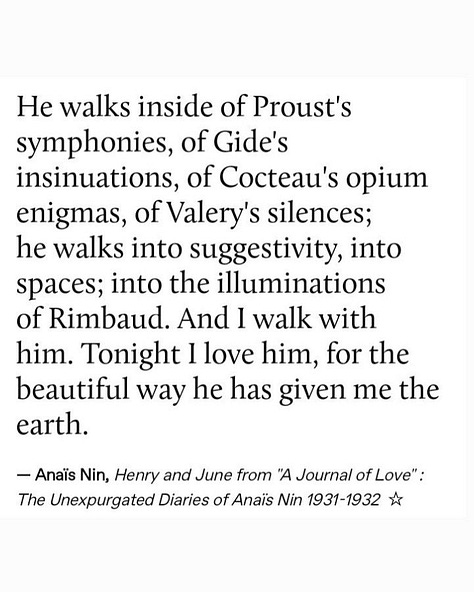

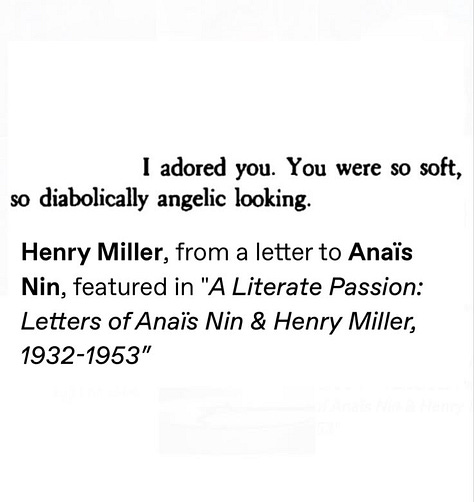
if we choose follow augustine’s theory, the body is a hindrance and an obstacle between the soul and god. but the mystics challenge this division. theresa of avila’s most famous vision is where her body is pierced by an angel’s golden spear, overcome with divine pleasure. it reads as something beyond metaphor. john of the cross writes of being wounded by love. their spirituality isn’t an escape from physicality but an embrace of it through another means.
perhaps this is why the idea of intellectual seduction is so intoxicating: it thrives on restraint. a conversation charged with subtext, a letter laden with implication, a gaze held just a second too long. these moments generate their own kind of tension, a pleasure sharpened by denial. the body, paradoxically, becomes most present in its absence. if physical desire burns quickly, intellectual intimacy smolders.
but is restraint always sustainable? at what point does the hunger demand satisfaction? and if it is never met, does it turn into something else—devotion, frustration, obsession?
there’s an inherent tragedy in the idea of intellectual intimacy replacing physical desire. if seduction is transformation, then an intellectual relationship with no physical realization exists in a permanent state of becoming. unfinished, unresolved. and yet, this liminality is part of what makes it so powerful. the mind never fully possessed is the mind that remains desirable.

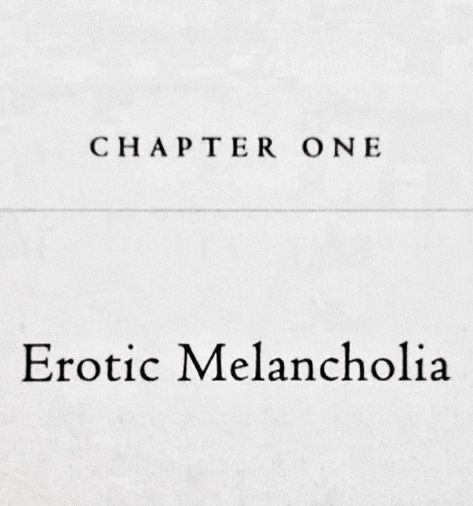

plato’s ascent in the symposium suggests that love should move beyond the physical, reaching toward something higher. but there is a cruelty in this kind of transcendence, because it demands the renunciation of what makes us human. we are not just minds; we are bodies. and while the intellect can seduce, can it truly sustain the hunger that lives in the flesh? or does it merely prolong this ache?
sartre would argue that all desire is performative, that even intellectual seduction is an existential act of self-creation. if this is true, then is the pursuit of intellectual intimacy ever truly about the other person, or is it about how we see ourselves in their gaze? do we desire to know, or do we desire to be known?
and what happens when that gaze shifts, when the mind we once found electrifying no longer holds its charge? can an attraction built on thought alone sustain itself indefinitely, or does it eventually collapse under the weight of its own idealism?
if i were to be honest, this is not just an intellectual exercise. there is something personal buried in this argument, something lived. there is a difference between preferring intellectual intimacy and needing it. some of us are wired this way. unable to separate attraction from perception, from conversation, from the way a single phrase can send a shiver down the spine in a way touch never could.
to be known in this way is to be undressed, not in body, but in mind. it’s the kind of intimacy that lingers far longer than touch. and maybe this is the great paradox of intellectual seduction: we long for the mind because it is unknowable. the body can be mapped, claimed, exhausted. the mind is infinite.
if seduction is about transformation, then the question remains: what are we seeking to become? if physical love binds us to the moment, intellectual intimacy is an invitation to exist in a constant state of potential. and perhaps that is its greatest allure. not what it gives us, but what it promises. the thrill of the unfinished. the seduction of the unknown.



books for further reading & exploration:
the journals of anais nin by anais nin – anais nin’s lifelong, deeply introspective diaries exploring love, art, eroticism, and the intricate psychology of desire. her writing blurs the line between intellect and sensuality, essential for understanding her philosophy of seduction. (also henry and june)
the symposium by plato – a foundational philosophical text on love and desire, in which plato portrays eros as a force beginning with physical attraction but ultimately seeking transcendence, truth, and the divine.
confessions by saint augustine – augustine’s intensely personal reflections on desire, sin, and faith, arguing that all human longing—whether for people, pleasure, or knowledge—is ultimately a misplaced yearning for god.
the interior castle by teresa of avila – a mystical text describing the soul’s journey toward divine intimacy, written in sensual, almost erotic language. teresa’s visions blur the sacred and the sensual, making it essential reading for exploring the intersection of spirituality and desire.
dark night of the soul by john of the cross – a poetic meditation on longing and transcendence, describing how the soul’s deepest suffering is also its greatest act of devotion. john uses evocative erotic imagery to articulate divine union.
being and nothingness by jean-paul sartre – sartre’s existentialist masterpiece exploring how all relationships, including love and desire, are performances in which we shape and are shaped by the gaze of the other.
eros the bittersweet by anne carson – a lyrical, philosophical exploration of desire and longing, drawing from greek literature, philosophy, and personal reflection. carson argues eros is defined by absence—the ache of wanting what we can never fully possess.
a lover’s discourse by roland barthes – a fragmented, poetic meditation on love and longing, dissecting the language of desire and how we articulate our emotions through culture, literature, and obsession.
the logic of sensation by gilles deleuze – a study of art, perception, and the body’s response to sensation, particularly through the work of painter francis bacon. deleuze provides a compelling framework for understanding the role of the body in intellectual and aesthetic pleasure.
and films for the cinephile:
eyes wide shut (1999) by stanley kubrick – a psychological and erotic exploration of intimacy, jealousy, and the blurred lines between fantasy and reality within marriage.
portrait of a lady on fire (2019) – a sensual, profound meditation on desire, art, and the intensity of intellectual and emotional connection between two women.
in the mood for love (2000) – a poetic and visually hypnotic exploration of emotional intimacy, unfulfilled desire, and the power of restraint.
the handmaiden (2016) – an intricate thriller exploring deception, eroticism, and the intimacy that develops through intellectual and physical seduction.
blue is the warmest color (2013) – a raw, deeply emotional depiction of desire, self-discovery, and the complexities of intellectual and physical intimacy.
call me by your name (2017) – a sensitive portrayal of first love, intellectual discovery, and the ache of longing, wrapped in rich, philosophical contemplation.
before sunrise (1995) – a beautifully articulated dialogue-driven romance, deeply rooted in the intimacy of thought and conversation rather than physical touch.
persona (1966) – a psychological masterpiece exploring identity, intimacy, and the boundary between minds, delving into the profound intimacy of shared consciousness.
her (2013) – a thoughtful meditation on technology, desire, and emotional connection, exploring intellectual intimacy in an increasingly isolated world.
the piano teacher (2001) – a complex, disturbing, and philosophically rich exploration of desire, repression, and the destructive potential of intellectual and physical obsessions.
okay, that’s all for today.
if you’re not ready to become a paid subscriber and you have the capacity to leave a tip, that would be so appreciated.
i love you.
bye.
(follow ig, tiktok, youtube, pinterest and spotify for more)


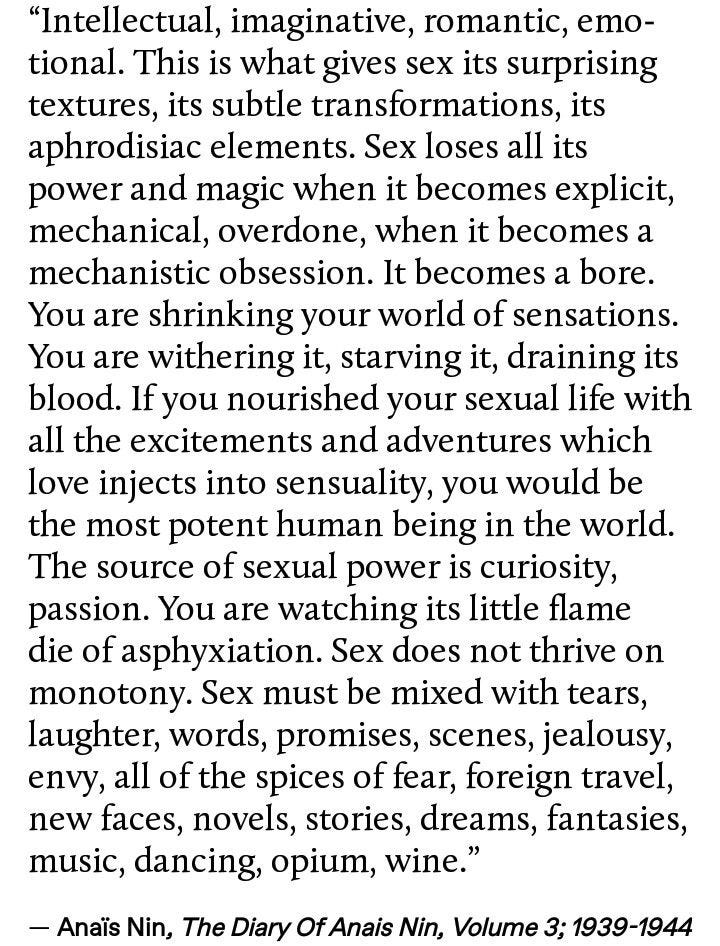


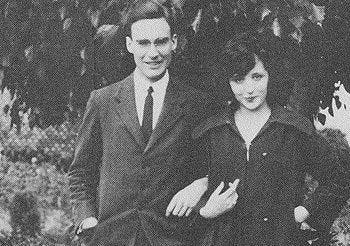
Reading your pieces feels like listening to calm, soothing piano tunes on a rainy night while sipping from my coffee mug. I'm gonna get a good night's sleep now.
You’ve really outdone yourself with this one; it was such a great read. The point you brought up from Sartre about desire being performative really resonated with me. Intellectual seduction, I believe, isn’t just about deeply engaging with another person’s mind as it is also about how these engagements reflect their own self-image or offer new ways to understand themselves. In this sense, a relationship with intellectual intimacy as the forefront can be thought of as an extension of one’s ongoing self-exploration, essentially just seeing yourself or even part of yourself - that could exist or is brewing - within the another’s eye. It’s possible that intellectual exchanges aren’t always primarily about the other person at all. For many, the experience of being intellectually engaged might be just as much about personal growth and self-creation as it is about connecting with another - utimately leading to a deeper understanding of one’s inner world and the continuous process of self-creation.
I think it could also be argued that self-creation (or at least in the case for myself), particularly in regard to the mind, is less daunting than through the flesh. The mind has the ability to offer a more malleable and less physically confrontational space for self-exploration, whereas the body often demands a more direct engagement with our limitations, desires, and vulnerabilities and exposes us to discomfort and confrontation with the physical self. The mind’s fluidity allows for more control and refinement, while the flesh - bound by biological constraints and sensory experiences, can often leads to unpredictable vulnerability and existential uncertainty. Therefore while both forms can b integral, the intellectual pursuit of self-creation may indeed present itself as less intimidating and a more manageable path to understanding oneself.
TL;DR : Ur post was great and something i’ve been debating in my personal life